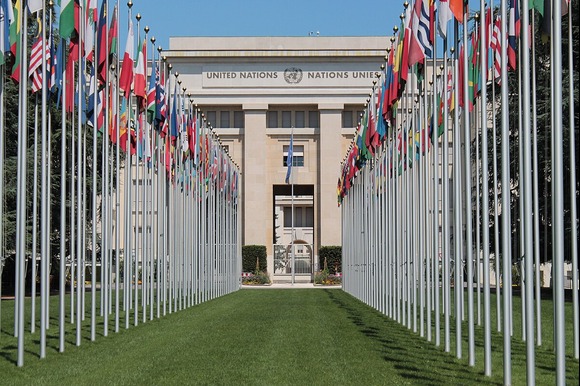A United Nations human rights expert has called on dozens of major multinational corporations to immediately halt business dealings with Israel, warning that their involvement could make them complicit in alleged war crimes in Gaza and the occupied West Bank.
Francesca Albanese, a special rapporteur for the UN Human Rights Council, presented her latest report this week in Geneva, in which she accused Israel of perpetrating “one of the cruellest genocides in modern history.” Albanese described what she termed “an economy of genocide,” alleging that the ongoing conflict with Hamas has become a testing ground for unregulated military technologies, with little accountability.
Israel has firmly rejected her report, dismissing it as “groundless” and asserting it “will join the dustbin of history.”
Although UN special rapporteurs like Albanese operate independently, their role is sanctioned by the United Nations to advise on human rights issues. Albanese, an Italian international lawyer known for her direct language, has previously stated that Israel is committing genocide in Gaza—a claim she repeated in her latest address to the council.
The new report explicitly names companies Albanese claims are profiting from the conflict and, by extension, are complicit in Israel’s alleged war crimes. Among them is US defense contractor Lockheed Martin, which supplies weapons to Israel, and major technology firms Alphabet (Google’s parent company), IBM, Microsoft, and Amazon, which the report says provide surveillance and targeting technologies.
Heavy equipment manufacturers Caterpillar, Hyundai, and Volvo are also cited, accused of supplying vehicles used in home demolitions and the destruction of Palestinian communities. Additionally, financial giants BNP Paribas and Barclays are listed for allegedly underwriting Israeli treasury bonds throughout the war.
The BBC has reached out to the companies for comment. Lockheed Martin emphasized that foreign military sales are government-to-government transactions, suggesting that questions be directed to the US government. Volvo rejected Albanese’s assessment, claiming her report relied on “insufficient and partly incorrect information.” The company reiterated its commitment to human rights and said it strives to improve due diligence, though it noted the limits of control over how its products are used over their lifetime.
According to Albanese’s report, the profits involved are substantial and help to sustain Israel’s war efforts. She urged all companies named to end their dealings with Israel immediately. While such UN reports carry no legal authority, they often garner global attention and shape public opinion.
By focusing on economic ties, Albanese appears to be drawing a parallel with the international disinvestment movement that played a significant role in the downfall of apartheid in South Africa. She seems to be encouraging consumers around the world to make informed purchasing decisions, in the hope that economic pressure might influence political change—much like the global boycott of South African goods in the 1980s.
However, her most serious allegation—that these companies could be complicit in genocide—is likely to attract the greatest scrutiny. Under international law, complicity does not require intent to commit genocide; it is sufficient for an individual or entity to take actions whose foreseeable effects contribute to genocidal acts. The International Court of Justice (ICJ) is currently examining a genocide case brought by South Africa against Israel, and legal experts have privately warned some European governments that continued arms sales to Israel could expose them to complicity charges.
Israel has long accused Albanese of hostility and antisemitism, denouncing her recent report as “defamatory” and “a flagrant abuse of office.” Israeli officials maintain that the war is a legitimate act of self-defence in response to Hamas attacks, and reject all allegations of genocide.
Despite the Israeli government’s condemnation, Albanese’s presentation received widespread support from member states at the Human Rights Council. A large bloc of African, Asian, and Arab nations endorsed her call for corporate disinvestment and echoed her concerns about Israel’s conduct. Several agreed that genocide may indeed be occurring and warned against efforts to delegitimize legal experts like Albanese.
European countries, while more traditionally aligned with Israel, also expressed concern. They condemned the Israeli government’s refusal to allow humanitarian aid into Gaza and reminded Tel Aviv of its legal obligations as an occupying power to ensure the Palestinian population has access to basic necessities.
The United States, Israel’s closest ally, did not attend the Human Rights Council session, having exited the body under President Donald Trump in early 2018. Washington responded to Albanese’s findings by accusing her of launching “an unacceptable campaign of political and economic warfare against the American and global economy.” Her team had contacted numerous US companies for information on their business operations involving Israel.
While the US government appears unlikely to act on Albanese’s recommendations, the global condemnation—particularly from regions where many of these companies operate—may cause corporate leaders to reconsider their associations. The reputational risk of being linked to potential genocide could outweigh the financial incentives for continuing business as usual.






